Depression is one of the most common mood disorders in the United States. In fact, at least 21 million individuals reported a depression episode in 2020 alone. The overwhelming sadness, hopelessness and empty feelings can be treacherous to navigate. Unfortunately, the many common misconceptions about depression as a mental illness can make matters worse. Take a look at some of the most common depression myths and facts to help clear up some of the associated confusion.
A Look at the Most Prevalent Depression Myths
1. Myth: Depression is just sadness.
Depression is not simply a state of sadness. People are not able to “snap out of it” or “get over” their feelings with depression. Depression goes deeper than sadness and doesn’t usually pass on its own. The feelings of dread and despair can be so overwhelming that they affect how the person functions in many facets of life.
2. Myth: People with depression are just weak-minded.
This stigmatization has grown extremely common and can cause an individual to feel too ashamed to seek treatment. Depression is a legitimate mental illness that can affect anyone, no matter how strong-minded or strong-willed. Depression is also not a sign of being too lazy to work through emotional issues, nor is it ungratefulness for the good things in life.
3. Myth: If you have depression, you will always be on medication.
There are a number of treatment options for depression. Some people achieve remission through therapy alone, some people need medication and some see success with holistic treatments. Just because you start antidepressant medication, it does not always mean you will need to be on it for the rest of your life.
4. Myth: Depression only happens to people who have been traumatized.
Past trauma can be associated with depression, but not always. It is entirely possible to develop depression even if there are no poignant traumatic events that have taken place in an individual’s history. However, trauma can trigger intense symptoms for someone who is already dealing with a depressive disorder.
5. Myth: Depression is not a real illness.
Depression is a real mental health illness. The condition is recognized by science and affects more than just the individual’s outlook or state of mind. In the most severe cases, depression can manifest physically. While depression can be difficult to see as an illness if you have never had it, it is important to remember that what you see on the surface is just the tip of the iceberg when it comes to depression symptoms.
6. Myth: Women get depression, but men don’t.
Both men and women can experience depression. While research indicates more women than men are depressed, researchers also believe that this is related to the fact that men are less likely to seek treatment or talk about their feelings due to associated stigma.
7. Myth: Depression is not really a big deal — it will go away.
Depression is a serious condition and should be treated as such. While some people do overcome depression without treatment, most need some level of professional help. In the most severe situations, depression can be a life-threatening situation.
8. Myth: You can help someone get over depression by doing something to cheer him or her up.
Well-meaning intentions to cheer a depressed individual up can actually do more harm than good in many situations. Simply trying to explain to someone with depression that there is a lot to be happy for can induce more feelings of shame and guilt. It is far better to simply ask how you can help or offer to help the person look for treatment options.
9. Myth: If you take depression medication, it changes who you are.
Antidepressant medications have been used to effectively treat people with depression for many years. It is a common misconception that these treatments make people act differently, overly happy or somehow “medicated.” In truth, most people feel a bit more at ease or like themselves. The only person who can truly tell a difference when taking antidepressants is the individual experiencing their helpful effects.
10. Myth: Family history doesn’t matter with depression.
Research indicates that half of the people diagnosed with major depression have a genetic component or family history. Therefore, if you have relatives with depression, you may face greater risks than someone who doesn’t. Depression can have many underlying factors that contribute, including genetics and life experiences.
A Final Word About Depression From Vanguard Behavioral Health
Depression may be associated with a lot of misconceptions, but there is no doubt that it is a very real, very concerning mental health concern for many people. The professionals at Vanguard are here to help those struggling with depression transform their lives. We have depression treatment centers that offer dual diagnosis treatment, various forms of therapy and compassionate care in both Tucson and Albuquerque. Reach out to get the helping hand you’ve been looking for to guide you to where you need to be.








